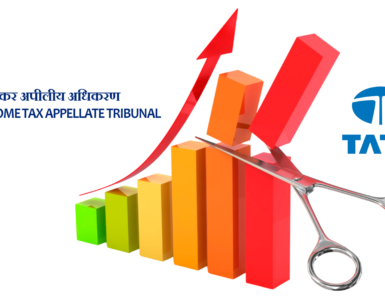In order to consolidate its subsidiaries Sun Pharmaceutical Industries, had approached the Ahmedabad bench of NCLT for an approval to transfer investment undertakings from Sun Pharma to its Netherlands based wholly-owned subsidiary. However, NCLT has rejected the proposal.
Brief Facts of the Case:
- Petition is filed by Sun Pharmaceutical Industries Limited for demerger and transfer of “Specified Investment Undertakings” to its direct or indirect wholly-owned subsidiaries viz Sun Pharma (Netherlands) B.V. and Sun Pharmaceutical Holdings USA Inc. under section 234 of the Companies Act, 2013.
- Appointed date was 1stApril 2017.
- Sun Pharmaceuticals has an investment in several overseas companies, by virtue of this Scheme the said investment will be integrated into its Subsidiary company.
- The Said demerger and subsequent transfer were without any consideration.
- The Company has obtained prior approval of SEBI through the relevant stock exchanges and the requisite corporate consents of its shareholders and creditors.
- The RBI also granted deemed approval by stating that the demerged company need to abide by the applicable rules and regulations, which the Company undertaken that it would.
The Scheme is disallowed on 19thDecember 2019 by NCLT-Ahmedabad on following grounds.
Section 234 of Companies Act, 2013
(Refer Page No. 10, paragraph no. 15 of the NCLT Order)
The Order states that, the provisions of Section 234 which relates to cross border mergers of Indian Companies with foreign companies and vice versa, mention only about the words “merger” and/or “amalgamation” and do not seems to contain the words “compromise” and/or “arrangement” and/or “demerger” and hence it may be construed that the provisions of Section 234 of the Companies Act, 2013 do not permit the “compromise” and/or “arrangement” and or “demerger” of the Indian Companies with foreign Companies and vice versa. In other words, the provisions of Section 234 of the Companies Act, 2013, do not provide for or rather restrict the demerger of the Indian Companies with foreign Companies.
Provisions of Section 234 of the Companies Act, 2013:
- The provisions of this Chapter unless otherwise provided under any other law for the time being in force, shall apply mutatis mutandis to schemes of mergers and amalgamations between companies registered under this Act and companies incorporated in the jurisdictions of such countries as may be notified from time to time by the Central Government.
Provided that the Central Government may make rules, in consultation with the Reserve Bank of India, in connection with mergers and amalgamations provided under this section. - Subject to the provisions of any other law for the time being in force, a foreign company, may with the prior approval of the Reserve Bank of India, merge into a company registered under this Act or vice versa and the terms and conditions of the scheme of merger may provide, among other things, for the payment of consideration to the shareholders of the merging company in cash, or in Depository Receipts, or partly in cash and partly in Depository Receipts, as the case may be, as per the scheme to be drawn up for the purpose.
Explanation—For the purposes of sub-section (2), the expression “foreign company” means any company or body corporate incorporated outside India whether having a place of business in India or not.
The said section is notified by Ministry of Corporate Affairs on 13th April 2017. As per provisions, an inbound merger (i.e., a merger of a foreign company into an Indian company with the Indian company as the surviving entity), as well as an outbound merger (i.e., a merger of an Indian company into a foreign company situated in certain permitted jurisdictions with such foreign entity as the surviving entity), is possible. Section 234 of the Act only refers to “mergers and amalgamations” without any express mention of demergers. With a literal interpretation of Section 234 will lead to such demergers being disallowed, the objective behind the provisions is to lay down a forward-looking law to facilitate cross-border mergers gets defeated.
Rule 25A of Companies (Compromises, Amendments and Amalgamations) Rules, 2016
(Refer Page No. 10-11, paragraph no. 15 of the NCLT Order)
The Hon’ble NCLT has mentioned that, Rule 25A of Companies (Compromises, Amendments and Amalgamations) Rules, 2016 in which detailed procedure and requirements are enumerated with respect to the cross-border mergers, is silent on “demergers” and mentions only “mergers” and “amalgamations”.
Following are mandatory steps under Rule 25A for Cross border mergers
- Prior approval of RBI for undertaking any cross-border merger;
- Transferee entity to ensure valuation by a valuer who is a member of a recognized professional body in its jurisdiction and in accordance with internationally accepted principles on accounting and valuation. A declaration is required to be submitted by the transferee company along with the application to RBI for obtaining its approval for the merger;
- Procedure as specified in Section 230-232 of the Act to be undertaken (like as applicable to a domestic merger);
- In case of outbound merger, foreign entity involved should be from a permitted jurisdiction.
Sun Pharma has followed due process as mentioned in Rule 25A by taking prior approval of RBI, done with Valuation in accordance with internationally accepted principles and undertaken procedure mentioned under Section 230-232 of the Companies Act, 2013, but the Hon’ble NCLT is in view that the said Rule is silent on “demergers”.
The Procedure mentioned in Rule 25A is for Inbound as well as Outbound merger. In absence of clarity over the permissibility of a foreign company demerging its business undertaking to an Indian company or vice versa under the Act, one should not follow the same procedure for cross border demergers.
RBI Foreign Exchange Management (Cross Border Merger) Regulations, 2018;
(Refer Page No. 11, paragraph no. 15 of the NCLT Order)
The Regulation defines Cross Border Merger as:
‘Cross border merger’ means any merger, amalgamation or arrangement between an Indian company and foreign company in accordance with Companies (Compromises, Arrangements and Amalgamation) Rules, 2016 notified under the Companies Act, 2013;
Interestingly, while the draft FEMA Regulations, 2017 covered “demerger” as a Cross Border merger, the notified FEMA Regulations, 2018 has specifically deleted the word “demerger” from definition of Cross border merger, there is no specific reason to exclude the word “demerger” from definition of Cross border merger.
The Regulation has not included word “Demerger” in the definition of Cross Border Merger.
Since the Companies Act is the governing legislation relating to compromises, arrangements and amalgamations, it appears that cross border arrangement are not permitted, even though they are contemplated in the FEMA Regulations. One also needs to interpret whether arrangement includes what all al types of arrangement including demerger or not. So even if one takes a view that arrangement includes demerger even then, one cannot implement such demerger because of interpretation by the honorable NCLT.
Conclusion:
By the Order, it seems that NCLT has strictly interpreted the Act, by disallowing Cross-Border Demerger and there was no reason why demerger not considered in cross border merger.
The Companies involved in Cross- border demergers will have no choice but resort to alternative methods under the Act, until Cross Border Demergers be allowed by an Appellate Tribunal or amendment in the Companies Act, 2013.
It is important that MCA and RBI analyze the various types of arrangements and should come up with uniform definitions and fine-tune with the domestic legal framework regarding scheme of arrangements, to avoid scenarios like Sun Pharma scheme.





Add comment